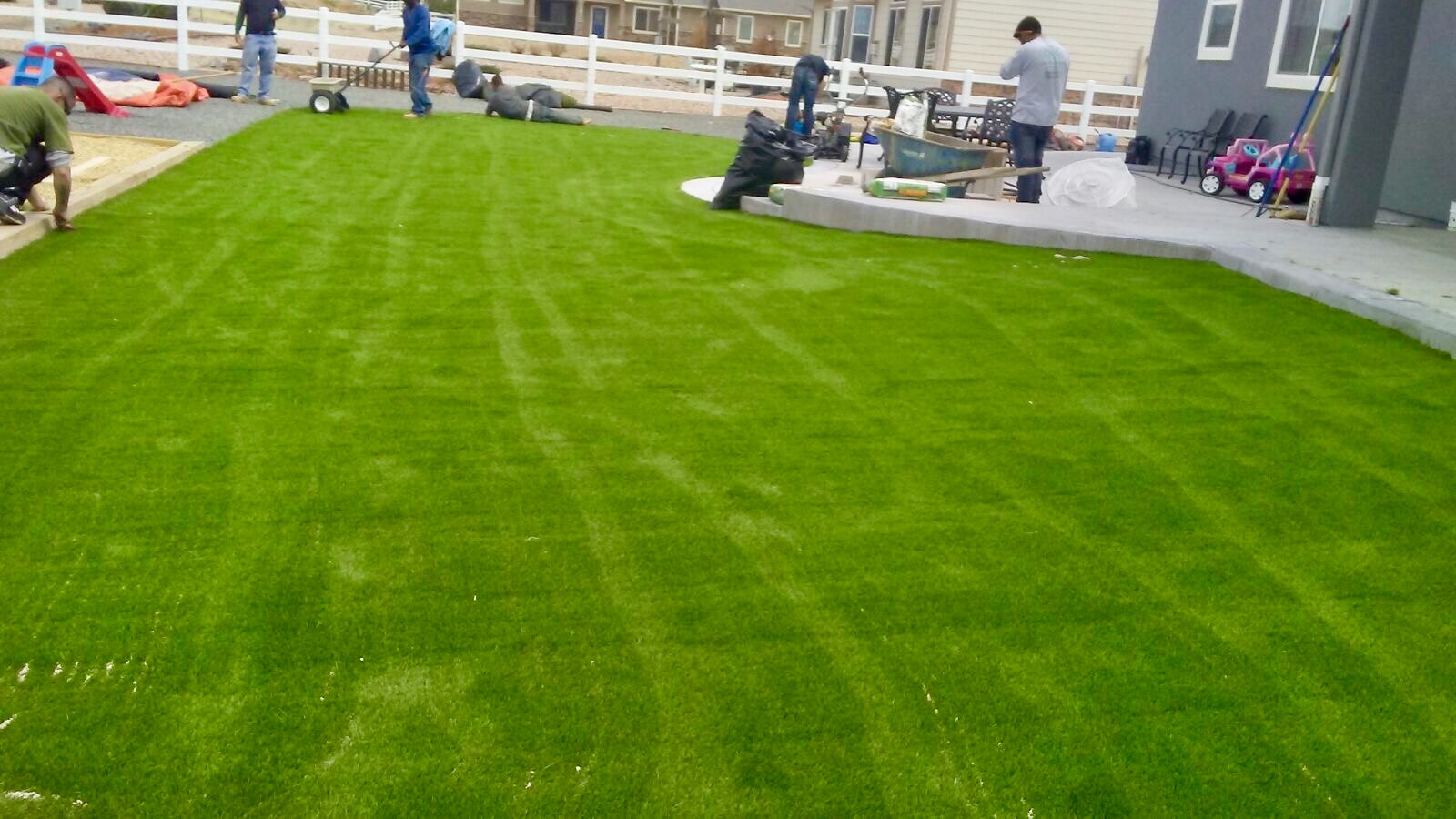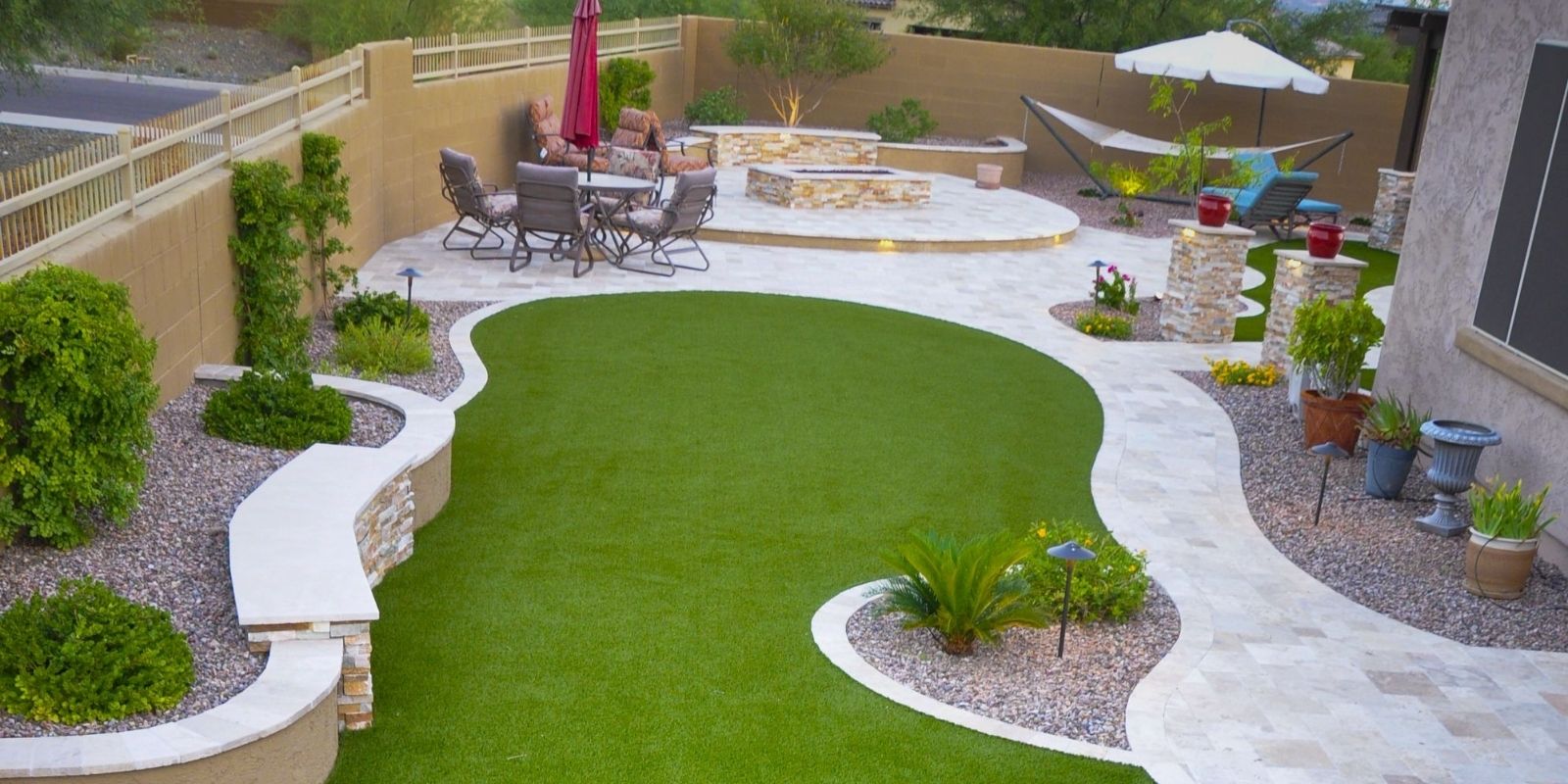Top Phoenix Turf Companies Providing High-End Synthetic Lawn Products
Top Phoenix Turf Companies Providing High-End Synthetic Lawn Products
Blog Article
Explore the Environmental Benefits of Opting for Artificial Turf Solutions
The adoption of fabricated turf remedies provides an engaging chance to address pushing environmental challenges. By significantly lowering water use and decreasing the application of unsafe chemicals, these options not only promote lasting landscaping yet likewise protect local environments. Moreover, the lower carbon impact connected with lowered upkeep tasks adds to an extra sustainable approach to land administration. The ramifications of these benefits prolong past mere conservation efforts, increasing questions about their lasting impact on environment preservation and overall eco-friendly balance. Checking out these dimensions reveals a complicated interaction worth taking into consideration.
Water Preservation Benefits
One of the most considerable benefits of artificial turf is its ability to preserve water. Typical grass yards call for considerable watering, particularly in locations prone to dry spell or water restrictions. In contrast, fabricated lawn does not require watering, substantially minimizing the general demand for water sources. This attribute is especially valuable in deserts where water deficiency is a pushing worry.
By eliminating the requirement for regular watering, man-made lawn adds to sustainable landscape methods and aids reduce the ecological influence of excessive water intake. The preservation of water expands to the decrease of runoff, which can lead to soil disintegration and river pollution.
In addition, the installation of man-made lawn enables municipalities and house owners to allot water resources much more effectively, concentrating on important usages such as drinking water and agriculture. The shift towards man-made grass not just promotes liable water use however likewise straightens with wider environmental goals intended at protecting natural deposits.
As neighborhoods progressively focus on sustainability, the water preservation advantages of synthetic grass provide a compelling case for its fostering in domestic and commercial landscape design tasks.
Lowered Chemical Use
The shift to synthetic grass substantially decreases the reliance on chemical therapies typically used in all-natural yard maintenance. Typical grass administration usually includes the application of fertilizers, herbicides, and pesticides to advertise growth and control parasites. These chemicals can posture dangers to human health, regional wildlife, and the environment, adding to soil and water contamination.
In comparison, synthetic grass removes the need for these harmful materials. When mounted, it requires marginal maintenance, primarily including regular cleansing and irregular infill replenishment. This decrease in chemical use not just profits the instant environment however additionally contributes to more comprehensive environmental security. By minimizing the release of artificial compounds into the ecological community, artificial grass advertises healthier soil and water systems.
Moreover, the absence of chemical overflow related to synthetic grass setups assists shield neighborhood rivers from air pollution, supporting aquatic life and maintaining biodiversity. Artificial turf companies phoenix. As neighborhoods progressively focus on sustainable practices, choosing synthetic grass provides a practical option that lines up with environmental conservation goals. Through this shift, residential property owners can take pleasure in rich eco-friendly spaces without endangering eco-friendly wellness, leading the way for an extra lasting future
Lower Carbon Impact

Additionally, the setup of synthetic grass can cause substantial water conservation. All-natural grass require significant amounts of water for watering, which not just contributes to the carbon footprint connected with water extraction and therapy yet also stress local water sources. On the other hand, artificial grass needs very little upkeep, calling for no watering, thus dramatically decreasing water use and its linked power expenses.
In addition, the long life of synthetic grass adds to its lower carbon impact. With a life-span of as much as 15 years or even more, the requirement for regular substitutes is decreased, causing much less waste and reduced energy intake in production and dealing with typical lawn options. Generally, synthetic grass offers a lasting choice for environmentally mindful landscaping.
Habitat Conservation
Habitat preservation is a vital consideration in the argument over landscape design options, especially when comparing synthetic grass this article to natural grass. All-natural lawn lawns often require extensive upkeep, including the usage of fertilizers, herbicides, and pesticides, which can detrimentally affect local environments. These chemicals can seep into the dirt and rivers, hurting indigenous plants and animals and interrupting local environments.
In comparison, synthetic grass presents a chance to decrease the eco-friendly footprint of landscape design. By choosing artificial turf, house owners can minimize the interruption of natural habitats connected with traditional yard treatment methods. Artificial turf gets rid of the demand for damaging chemicals, therefore safeguarding close-by wildlife and keeping the integrity of surrounding ecological communities. Additionally, the setup of synthetic grass can lead to the conversion of former grass areas into even more biodiverse landscapes, such as pollinator yards or native plant locations, which can sustain neighborhood wild animals.
Eventually, the shift to synthetic grass not only preserves water and lowers upkeep efforts yet additionally promotes a much more harmonious partnership in between human activities and the natural environment, promoting habitat preservation in the process.
Long-Term Sustainability
Lasting sustainability is a crucial variable in examining the advantages of synthetic grass over traditional turf yards. One of the most substantial advantages of synthetic grass is its durability; it can last approximately 15-20 years with minimal upkeep, whereas natural yard needs regular reseeding and substitute. This longevity minimizes the need for continuous sources, such as water, fertilizers, and chemicals, which are necessary for maintaining a healthy yard lawn.
In addition, synthetic grass adds to a decrease in carbon discharges connected with lawn treatment devices. Standard lawns commonly require gas-powered lawn mowers, leaners, and blowers, every one of which contribute to air pollution. Arizona turf. On the other hand, fabricated turf removes the requirement for such devices, promoting a cleaner setting
Furthermore, the production of synthetic turf significantly makes use of recycled products, boosting its sustainability account. As manufacturers embrace environment-friendly techniques, the ecological footprint of synthetic grass remains to lessen.

Conclusion
The adoption of synthetic grass options offers substantial environmental advantages, consisting of significant water preservation, reduced reliance on hazardous chemicals, and a lower carbon footprint. In addition, synthetic grass help in maintaining all-natural habitats by minimizing land disturbance and advertising long-lasting sustainability via using resilient materials. Jointly, these elements underscore the possibility of man-made lawn to add positively to ecological wellness and provide a sensible choice to conventional landscaping methods in a significantly resource-conscious globe.
In comparison, synthetic lawn does not need watering, substantially minimizing over here the overall need for water resources. By decreasing the launch of artificial compounds into the ecosystem, man-made grass promotes healthier dirt and water systems.
In addition, the setup of synthetic grass can result in considerable water conservation. In contrast, synthetic lawn needs very little upkeep, calling for no watering, therefore considerably lowering water usage and its connected energy prices.

Report this page